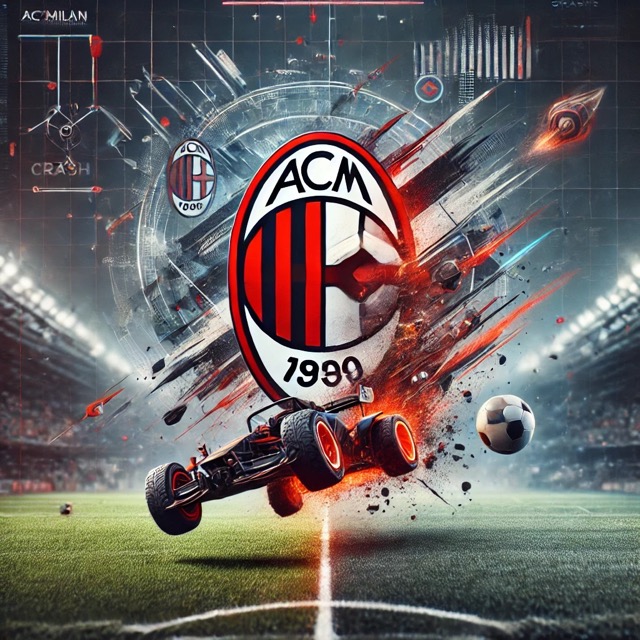
AC Milan’s recent partnership with Spribe’s Aviator introduces a different kind of collaboration to the club’s roster of official partners. This venture brings a crash game into the sponsorship lineup—a genre known for its simplicity, high engagement, and rapidly increasing appeal. It’s part of a larger trend where clubs, leagues, and associations are beginning to include digital game partnerships as an official category in their sponsorship structures, much like beer, apparel, or telecoms. This article explores how crash games fit into this landscape, why they attract both sports leagues and fans, and what the AC Milan-Aviator partnership means for future collaborations.
What Makes Crash Games an Appealing Sponsorship Choice?
Crash games, like Aviator, are straightforward but create a high-adrenaline experience for players. In a crash game, a multiplier steadily rises, and players must decide when to cash out before it crashes. The simplicity of the rules makes the genre accessible, while the element of risk keeps it engaging. According to recent data, Aviator alone reaches millions of players each month, showing that this high-stakes yet simple gameplay has broad appeal.
The rise of crash games within the online gaming industry has coincided with a shift in how sports teams and leagues think about sponsorships. Traditional sponsorships generally focused on placing logos on jerseys, in stadiums, or in broadcast graphics. But as more fans engage digitally, sports clubs are exploring partnerships with interactive games that extend their presence into the online activities where fans spend increasing amounts of time.
For AC Milan, partnering with Aviator offers a way to connect with fans outside the stadium and beyond traditional sports media. This format of gameplay resonates with younger audiences and those who are familiar with digital gaming, a key demographic for clubs looking to expand their fanbase and maintain relevance across age groups.
Integrating Crash Games into the Club’s Identity
One of the distinctive aspects of this partnership is how AC Milan’s brand could be embedded within the Aviator game. Unlike standard advertising, where the club’s logo might appear on a billboard or in broadcast graphics, the AC Milan brand can be woven directly into the digital environment where fans are actively participating. For example, the game might include special team-themed visuals, AC Milan-related incentives for specific achievements, or even exclusive club content accessible only through the Aviator platform.
This level of integration goes beyond conventional sponsorship and creates a more immersive experience. By partnering with Aviator as an official crash game, AC Milan not only enters a new space but also shapes the game’s environment to reflect its identity. Fans encounter the club’s brand in a dynamic way, not just as spectators but as participants, which strengthens their connection to the club.
The Business Rationale Behind Adding Crash Games to the Official Partner Lineup
Adding a crash game to the lineup of official partners, much like sponsors for apparel, drinks, or betting, reflects a recognition of changing fan behaviors. Many sports clubs are finding that digital games offer new revenue models and a way to reach fans in environments where they’re most engaged. Unlike traditional sponsorships, which rely on passive consumption, partnerships with games allow clubs to participate in fans’ interactive experiences. The Ultimate Fighting Championship (UFC) has also integrated Aviator into its partnership suite, signaling that clubs and leagues across sports are seeing the potential in crash games and other digital formats.
The partnership model between AC Milan and Aviator benefits both parties in a unique way. For AC Milan, this brings a new revenue stream that capitalizes on the game’s popularity. For Aviator, the partnership brings exposure to a global audience of passionate fans, many of whom may have no prior experience with crash games. Associating with a prestigious club like AC Milan lends Aviator credibility and positions the game in a new light for traditional sports audiences.
How Rewarded Play Could Enhance the Fan Experience
One of the powerful aspects of this partnership is the opportunity for rewarded play, where fans receive in-game rewards or special content linked to AC Milan. For instance, players might earn exclusive team-related bonuses, digital collectibles, or access to unique content by achieving certain goals in Aviator. This not only encourages fans to engage more with the game but also creates a bridge between the digital and physical worlds of sports fandom. Fans feel a direct benefit from their loyalty to the club, making the game a natural extension of their experience as supporters.
Rewarded play transforms the interaction from a casual gaming experience into a meaningful part of fans’ connection with the club. For sports organizations, this level of engagement offers insights into how fans interact with the brand in non-sporting contexts, providing data that can inform future partnerships and fan engagement strategies.
Future of Sports Sponsorships with Digital Gaming Partnerships
AC Milan’s addition of Aviator as an official partner highlights a shift in the sponsorship landscape for sports organizations. As more clubs and leagues experiment with digital and interactive partnerships, we could see gaming categories become a standard part of the official partner lineup. These collaborations allow clubs to tap into the habits of digital-native fans while introducing new sources of sponsorship revenue.
The appeal of partnerships with games like Aviator is that they go beyond visibility and brand association. They offer a dynamic way to reach fans, adding a layer of interactivity that aligns with how today’s audiences consume entertainment. The AC Milan-Aviator partnership suggests a future where sports sponsorships increasingly move toward immersive experiences, where fans aren’t just passive viewers but active participants in the club’s brand.
This integration of crash games and other interactive formats into official partner lineups signals that sports sponsorship is evolving. Clubs and leagues are recognizing the potential of digital spaces to create value for both the fans and the brand, setting the stage for a new era of sports partnerships that prioritize engagement and interactive fan experiences.








